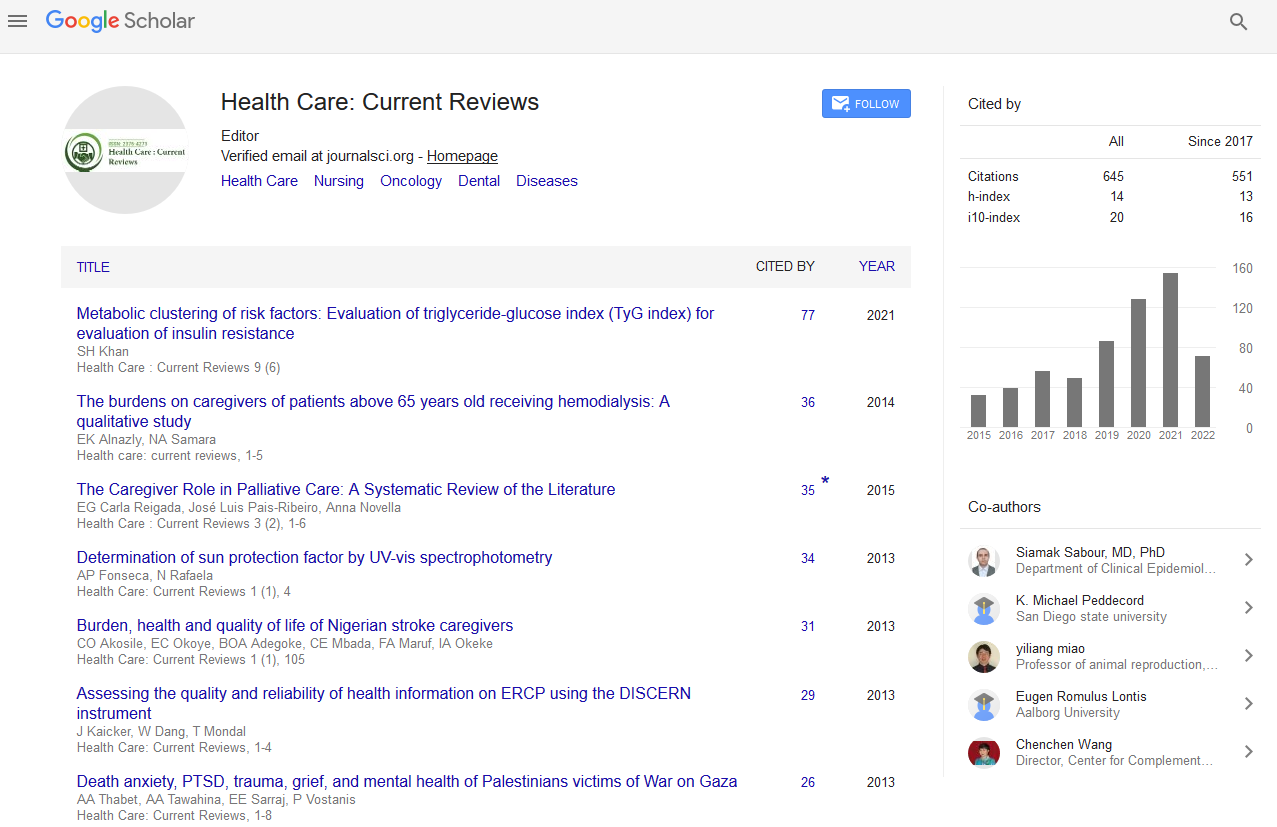PMC/PubMed Indexed Articles
Indexed In
- Open J Gate
- Academic Keys
- RefSeek
- Hamdard University
- EBSCO A-Z
- Publons
- Geneva Foundation for Medical Education and Research
- Google Scholar
Useful Links
Share This Page
Journal Flyer

Open Access Journals
- Agri and Aquaculture
- Biochemistry
- Bioinformatics & Systems Biology
- Business & Management
- Chemistry
- Clinical Sciences
- Engineering
- Food & Nutrition
- General Science
- Genetics & Molecular Biology
- Immunology & Microbiology
- Medical Sciences
- Neuroscience & Psychology
- Nursing & Health Care
- Pharmaceutical Sciences
Healthcare literacy of diabetic mellitus chronic complications among diabetic patients: A rural South Africa perspective
Joint Event on 3rd International Conference on Medical Sciences, Hypertension and Healthcare and World Congress on Organ Transplantation and Artificial Organs
August 24-25, 2018 Tokyo, Japan
Nditsheni J Ramakuela
University of Venda, South Africa
Keynote: Health Care Current Reviews
Abstract:
Statement of the Problem: Diabetic care is a lifelong responsibility, careful management and early treatment strategies may reduce the risk of complications. A profound need for an improvement in the awareness of diabetes management and its complications in the primary healthcare sectors is a dire requirement. Inadequate health literacy can cause difficulties in understanding diabetic chronic complications. Individuals with poorer health literacy have difficulty interpreting medication warning labels, following directions on a prescription label and identifying their complications. Difficulties in understanding and performing health-related activities may ultimately lead to poorer health outcomes. This study intended is to assess health literacy of diabetic mellitus chronic complications among diabetic patients at selected rural hospitals of South Africa. Methodology: This study employed a quantitative, typically descriptive, non-experimental approach using cross-sectional descriptive designs. Seven hospitals, 3 health centers and 12 clinics were selected for the study. The population was 259 diabetic patients in the province. Patients diagnosed with diabetes above 18 years were admitted from April to November 2016 in medical units of selected hospitals. A self-designed self-administered questionnaire was used to collect data. Data were analyzed using SPSS version 20.0. Validity and reliability and ethical considerations were adhered too. Findings: It was revealed that the accessibility to health services, treatment and behavioral factors were found to be challenges amongst diabetic patients and were perceived to be contributing to inadequate health literacy regarding diabetic complications. Conclusion: Patients with diabetic complications require adequate knowledge and health services within their reach. Recommendations: The use of mobile clinics to provide services to remote villages and home-care visits to diabetic patients in remote communities for continuing literacy.
Biography :
Nditsheni J Ramakuela is a Healthcare Professional, Specialized in Community Health Care and Sexuality of Women. She is also a Lecturer in the University of Venda, South Africa. She has more than 20 years of clinical and teaching experience. Through her experience she developed passion for general nursing conditions and disorders. She is an active researcher who publishes papers every year in accredited journals and receives excellence in research awards yearly. She also empowers rural community women with reproductive health issues.
E-mail: nditsheni.ramakuela@univen.ac.za


